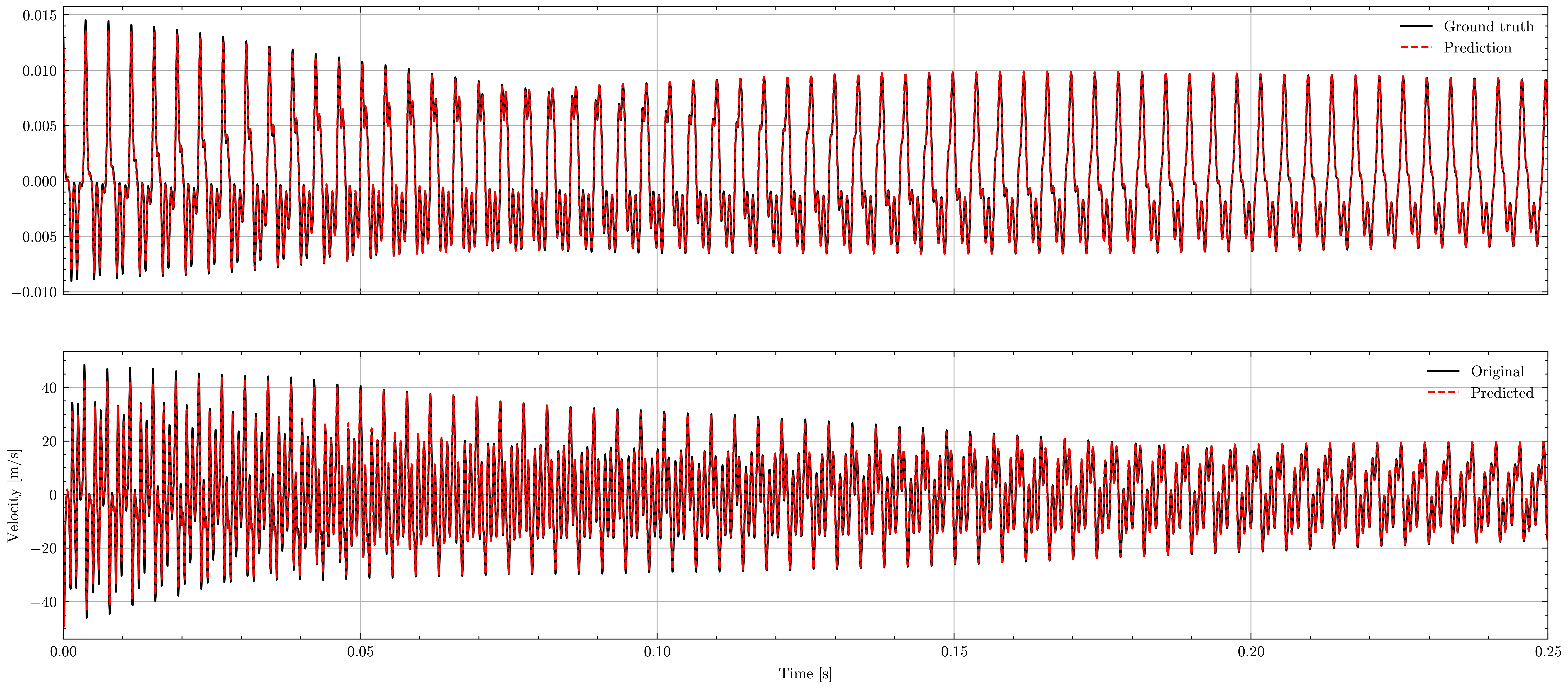{ 'A': 5.188e-07, 'I': 1.41e-13, 'rho': 1140, 'E': 5400000000.0, 'd1': 8e-05, 'd3': 1.4e-05, 'Ts0': 60.97, 'length': 0.65 }

This notebook demonstrates how to use the physmodjax library to control the learnt eigenvalues of the trained model.
Given a random initial condition and string parameters, we will observe what the network predicts at a certain position along the string (marked by the red line).
{ 'A': 5.188e-07, 'I': 1.41e-13, 'rho': 1140, 'E': 5400000000.0, 'd1': 8e-05, 'd3': 1.4e-05, 'Ts0': 60.97, 'length': 0.65 }

At position 0.225cm along the string, the network predicts:
| Ground Truth | |
| Prediction |

We can modify the eigenvalues to have different pitch glides, because of the architecture of the network, the pitch glide is independent of the global dynamics of the network. Thus our network doesn’t need to train on different material paramters to allow for changing the frequencies and decay rates.
| Radius \ Angle | 0.8 | 0.9 | 1.0 | 1.2 | 1.3 |
| 1.0 |
|
|
|
|
|
| 0.99999 |
|
|
|
|
|
| 0.9999 |
|
|
|
|
|
| 0.999 |
|
|
|
|
|
| 0.99 |
|
|
|
|
|
or we can also add some random noise to their placement for creative purposes
| Original Prediction | |
| with some random noise | |
| with a lot of noise |
Ground truth (left) and prediction (right) of the network up to 100ms. The network predicts successive blocks of 399 timesteps. We use the last timestep of the previous block as the initial condition for the next block.
At position (0.156, 0.195) cm on the membrane, the network predicts:
| Ground truth | |
| Prediction |